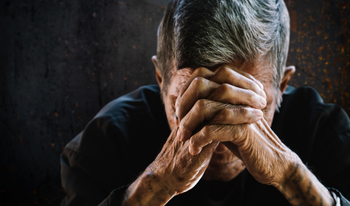by Mary Adams, AWC The Hague and Human Rights Team Co-Chair
“Violence against older persons is a global phenomenon ... such violence and abuse often go unnoticed and remain a taboo in many societies.” – UN independent expert Claudia Mahler
The United Nations defines an older person as aged 60 years and older, recognizing that ageing definitions vary depending on cultural, legal and social factors. The United Nations Principles for Older Persons1 states that the elderly should be able to live in dignity and security and be free of exploitation and physical or mental abuse. Unfortunately, gender-based violence knows no age limit.
Women outnumber men at older ages due to their longer life expectancy. In 2022, women accounted for 55.7% of people aged 65 or older globally.2 Older women suffer from the double jeopardy of both gender-based violence and abuse of older people – the intersection between sexism and ageism. Brutality against older women includes physical, psychological and sexualized violence. Violence occurs in homes, workplaces, care institutions and communities.
 Violence against older women has physical and emotional effects. Victims become fearful and anxious. They may have problems with trust and may be wary of others. Physical injuries vary: from minor cuts, scratches and bruises to welts. Other harm such as head injuries, broken bones, constant physical pain, and soreness can cause lasting disabilities. Physical injuries can also lead to premature death and worsen existing health problems.
Violence against older women has physical and emotional effects. Victims become fearful and anxious. They may have problems with trust and may be wary of others. Physical injuries vary: from minor cuts, scratches and bruises to welts. Other harm such as head injuries, broken bones, constant physical pain, and soreness can cause lasting disabilities. Physical injuries can also lead to premature death and worsen existing health problems.
Domestic violence services and research do not have a particular focus on the needs of older women or age-related issues. Older women remain invisible in datasets and are routinely excluded from policy and programs that address violence against women and girls. This omission translates into a lack of protection mechanisms, limited access to tailored services and a lack of effective prevention programs for older women.3
Continued efforts are needed to strengthen prevention strategies, improve victim support services, enhance legal and policy frameworks, and promote age-friendly societies that respect and protect the rights and dignity of older women.
World Elder Abuse Awareness Day is June 15th. This day is an opportunity for communities around the world to promote a better understanding of abuse and neglect of older persons by raising awareness of the cultural, social, economic and demographic processes affecting elder abuse and neglect. One group in Australia taking grassroots action is the Older People And Sexual Rights (OPAL) Institute. Their mission is to celebrate ageing by challenging ageism and building respect for older people. Visit their website and read about projects and resources. Listen to the voices of older women. Walk in their shoes. Meet 95-year-old Margarita, who was sexually assaulted in a care facility and no one would believe her. Most importantly, learn how you can become an Aged Care Advocate.
The FAWCO Health Team developed an Elder Care team during 2023. The purpose of this group is to discuss the various aspects of elder care. Would you like to know more about the group, or join the group? Please send an email, and one of the Co-Chairs will contact you to provide more information.
References:
